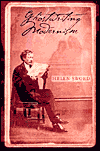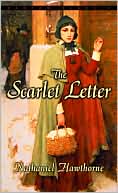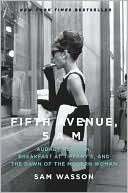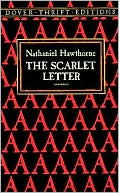Ghostwriting Modernism
Spiritualism is often dismissed by literary critics and historians as merely a Victorian fad. Helen Sword demonstrates that it continued to flourish well into the twentieth century and seeks to explain why. Literary modernism, she maintains, is replete with ghosts and spirits. In Ghostwriting Modernism she explores spiritualism's striking persistence and what she calls "the vexed relationship between mediumistic discourse and modernist literary aesthetics."Sword begins with a brief historical...
Search in google:
Spiritualism is often dismissed by literary critics and historians as merely a Victorian fad. Helen Sword demonstrates that it continued to flourish well into the twentieth century and seeks to explain why. Literary modernism, she maintains, is replete with ghosts and spirits. In Ghostwriting Modernism she explores spiritualism's striking persistence and what she calls "the vexed relationship between mediumistic discourse and modernist literary aesthetics."Sword begins with a brief historical review of popular spiritualism's roots in nineteenth-century literary culture. In subsequent chapters, she discusses the forms of mediumship most closely allied with writing, the forms of writing most closely allied with mediumship, and the thematic and aesthetic alliances between popular spiritualism and modernist literature. Finally, she accounts for the recent proliferation of a spiritualist-influenced vocabulary (ghostliness, hauntings, the uncanny) in the works of historians, sociologists, philosophers, and especially literary critics and theorists. Documenting the hitherto unexplored relationship between spiritualism and modern authors (some credulous, some skeptical), Sword offers compelling readings of works by James Joyce, T. S. Eliot, W. B. Yeats, H.D., James Merrill, Sylvia Plath, and Ted Hughes. Even as modernists mock spiritualism's ludicrous lingo and deride its metaphysical excesses, she finds, they are intrigued and attracted by its ontological shiftiness, its blurring of the traditional divide between high culture and low culture, and its self-serving tendency to favor form over content (medium, so to speak, over message). Like modernism itself, Sword asserts, spiritualism embraces rather than eschews paradox, providing an ideological space where conservative beliefs can coexist with radical, even iconoclastic, thought and action.
PrefaceIntroduction: Ghostwriting1Ch. 1Necrobibliography10Books in the Spirit WorldGhosts in the LibraryCh. 2The Undeath of the Author32ApophradesSpirit Mediums and Dead White MenCh. 3Necrobardolatry49Specters of ShakespeareJoyce, Dowden, and the Father's SpiritCh. 4Metaphorical Mediumship76Low Haunts, High ArtDoing Eliot in Different VoicesCh. 5Modernist Hauntology103Yeats, Mediums, and the Desolate PlacesH. D.'s CryptopoeticsCh. 6Ghostwriting Postmodernism132Plath, Merrill, and the Politics of OuijaThe Haunting of Ted HughesEpilogue: Ghostreading159Notes167Bibliography187Index205
\ From the Publisher"Spiritualism is not merely a neglected but a repressed subject in the history of modernism. Helen Sword brilliantly illuminates an era that was credulous and mystical as well as skeptical and ironic-an age that 'materialized the spiritual and spiritualized the material.'"-Timothy Materer, author of James Merrill's Apocalypse\ "Helen Sword's Ghostwriting Modernism offers a fascinating account of literary modernism's engagement with popular spiritualism. In a striking reversal of common assumptions, Sword asserts that for many writers spiritual pursuits were central rather than aberrational elements of their modernist aesthetics. In a series of provocative and engaging readings, Sword juxtaposes the work of largely unknown literary mediums with the mediumistic work of some of modernism's most canonical figures. The result is nothing less than a remapping of the domain of modernism to reveal its methods and metaphors as indelibly ghostridden."-Bette London, University of Rochester\ "Sword offers a convincing demonstration of the ubiquitous influence of spiritualist practice. Of particular interest is the chapter on 'spirit writing'-that is, books written by mediums who claim to be channeling the words of the deceased. . . . Its extensive bibliography, copious notes, and fine insights make it a recommended volume for academic readers at all levels."-Choice, September 2002\ "Ghostwriting Modernism is a well-researched and intelligent book that works in the best tradition of cultural studies-deftly exploring the interpenetration of highbrow modernism and popular spiritualism."-Sean Latham. James Joyce Literary Supplement, Fall 2002.\ "Helen Sword's short book is a dense and engrossing account of rarely pursued writings. . . Ghostwriting Modernism is a book that grows on you, not just because of its original documentation and its systematic appraisal of an often neglected topic, but also because of its skillful progression and elegant construction."-Jean-Michel Rabate, University of Pennsylvania. Modernism/modernity, 10:1.\ "Ghostwriting Modernism focuses upon the history and implications of spiritualism-whether embraced or disdained-in the writings of Yeats, Joyce, Eliot, H.D., progressing chronologically to the Ouija board soundings deciphered into poems by Sylvia Plath, Ted Hughes, and James Merrill. . . Sword points out that modernist narratives of other worlds reveal the cultural and ideological concerns of the living. Contemporary perceptions are haunted by everything that has come before. Reading this knowledgeable book, I begin to wonder what liminal world might be swirling through."-Charlotte Mandel. English Literature in Transition 46:1 2003.\ "Sword's excellent book is a model of sensible lucidity."-William J. Maxwell, University of Illinois, American Literature, Sept. 2003\ "Sword begins her survey in the nineteenth century, tracing the fluctuating status of popular spiritualism as it was alternately satirized by male writers and celebrated by popular female authors. . . . The book is . . . successful in the detailed sections that outline the parallel developments and intersections of spiritualism and modernist writing. Although in 'Tradition and the Individual Talent' Eliot writes that his famous formulation of modernist poetics will 'halt at the frontier of . . . mysticism' in exploring the way that writers often did not halt at this frontier, Sword offers a valuable account of the literary results of their efforts to open the coffin lids of the famous dead."-Stephen J. Burn, Northern Michigan University, James Joyce Quarterly, vol. 40, no. 3\ \ \








